
CONTACTAbout UsCAREER OPPORTUNITIESADVERTISE WITH USPRIVACY POLICYPRIVACY PREFERENCESTERMS OF USELEGAL NOTICE
© 2025 Equal Entertainment LLC.
All Rights reserved
All Rights reserved
By continuing to use our site, you agree to our Privacy Policy and Terms of Use.
We need your help
Your support makes The Advocate's original LGBTQ+ reporting possible. Become a member today to help us continue this work.
Your support makes The Advocate's original LGBTQ+ reporting possible. Become a member today to help us continue this work.
As the never-ending public slugfest between former New Jersey governor Jim McGreevey and ex-wife Dina Matos McGreevey demonstrates, the dissolution of a marriage is hard -- harder still when the separation involves a coming-out.
The anger and self-doubt accompanying any divorce is exponentially greater for the straight wives or husbands whose spouses announce they're gay and leaving. It's an unenviable position -- one that often includes thoughts of I should've known and Did I turn him/her gay? Amity Buxton has been helping people get through this situation for years through the organization she founded, the Bay Area-based Straight Spouse Network.
"Being rejected as a man or a woman is the hardest thing to go through," says Buxton, who was married for 25 years to a closeted man. Her group provides support and education for and by current and former spouses of LGBT people (as well as some gay members of those relationships). "Our goal is that gay people don't feel they have to get married because of social pressure," says Buxton, "that they could marry each other and we wouldn't have so many family tragedies."
The Straight Spouse Network began in 1991, an outgrowth of spouse meetings sponsored by PFLAG. It has an annual budget of about $100,000 and thousands of participants across the country. "Most people don't understand how this is different from a usual affair or divorce," says Buxton. "When the spouses find people who understand their anger and explain they didn't turn anyone gay, they gradually stand on their own feet again and understand the gay point of view." The network links up people through StraightSpouse.org, aligning those in similar situations.
Once a spouse comes out, couples fall into one of three categories, Buxton says. Either they immediately separate, they try to make it work but divorce within a few years, or they commit to the marriage, either as a monogamous, celibate, or open-relationship couple. The network passes judgment on no one, Buxton says.
Living up to its aforementioned goal, the network listed itself as an endorser of the ACLU's successful case against California's ban on same-sex marriage. The network also condemned reparative therapy, and attempts to help high-profile figures who've separated from gay spouses. Buxton has spoken several times with Matos McGreevey.
Says Buxton: "One of the things Dina said was, 'It took me a minute to decide whether to go out on TV with him [when McGreevey came out publicly]. And I thought, I need to be there in my own right. The public thought, I'm standing by my man. No -- I needed to show I'm still here and still strong.' "
Nbroverman
From our Sponsors
Most Popular
Bizarre Epstein files reference to Trump, Putin, and oral sex with ‘Bubba’ draws scrutiny in Congress
November 14 2025 4:08 PM
True
Jeffrey Epstein’s brother says the ‘Bubba’ mentioned in Trump oral sex email is not Bill Clinton
November 16 2025 9:15 AM
True
Watch Now: Pride Today
Latest Stories
Health policy expert to RFK Jr.: You can't ban trans youth care this way
December 18 2025 5:37 PM
12 lesbian thrillers and mysteries to binge & where to watch them
December 18 2025 4:36 PM
Netflix's 'Boots' season 2 plot revealed by producer amid cancelation
December 18 2025 4:33 PM
Charlie Kirk's accused killer, Tyler Robinson, on LGBTQ+ issues: It's complicated
December 18 2025 4:04 PM
Sacramento man still in coma six weeks after suspected anti-LGBTQ+ hate crime
December 18 2025 1:17 PM
RFK Jr. and Dr. Oz announce sweeping measures to ban gender-affirming care for trans youth
December 18 2025 12:19 PM
True
Texas city will remove rainbow crosswalks under orders from Trump administration
December 18 2025 11:07 AM
Six key takeaways from Trump's speech to the nation, including 'transgender for everybody'
December 17 2025 10:51 PM
Marjorie Taylor Greene’s bill criminalizing gender-affirming care for minors passes with Democrats’ support
December 17 2025 6:47 PM
True
I didn’t just run the world’s major marathons. I changed them
December 17 2025 4:31 PM
Pam Bondi wants FBI to offer bounties for ‘radical gender ideology’ groups, leaked memo shows
December 17 2025 3:17 PM
Rock Hudson had a 'legendarily large penis,' Armistead Maupin says
December 17 2025 3:05 PM
Trending stories
Recommended Stories for You

Neal Broverman
Neal Broverman is the Editorial Director, Print of Pride Media, publishers of The Advocate, Out, Out Traveler, and Plus, spending more than 20 years in journalism. He indulges his interest in transportation and urban planning with regular contributions to Los Angeles magazine, and his work has also appeared in the Los Angeles Times and USA Today. He lives in the City of Angels with his husband, children, and their chiweenie.
Neal Broverman is the Editorial Director, Print of Pride Media, publishers of The Advocate, Out, Out Traveler, and Plus, spending more than 20 years in journalism. He indulges his interest in transportation and urban planning with regular contributions to Los Angeles magazine, and his work has also appeared in the Los Angeles Times and USA Today. He lives in the City of Angels with his husband, children, and their chiweenie.





























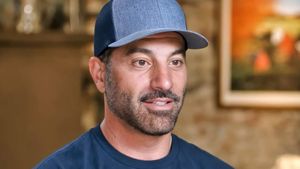

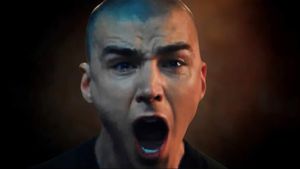
























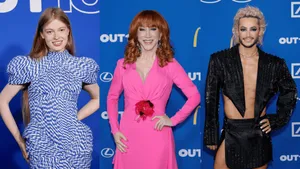




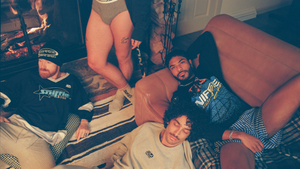
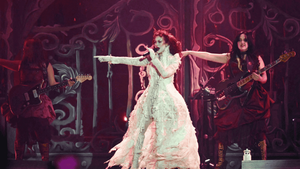




Charlie Kirk DID say stoning gay people was the 'perfect law' — and these other heinous quotes